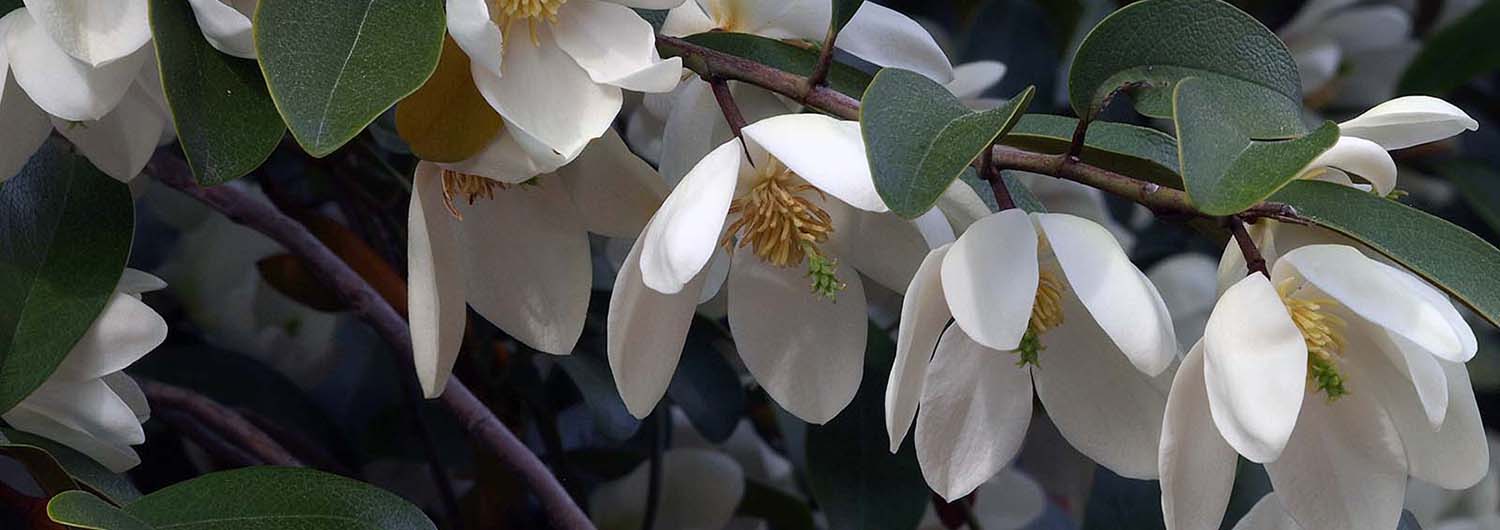Friends of the Arboretum Lecture
"The Genius of Charles Darwin: From Natural History to a New Biology"
William Kimler, Ph.D., Associate Professor, Department of History, NC State University
- Thursday, May 21, 2009 – 7:30 pm–9:00 pm
Two thousand and nine is the bicentennial year of the birth of Charles Darwin, and the 150th anniversary of his Origin of Species. It is clear now that, as famously remarked, "Nothing in biology makes sense except in the light of evolution." But Darwin began his work within an older tradition of natural history, collecting specimens and studying diversity, attracted to the beauty and the marvels of nature. He took typical delight in the Creator's wondrous designs for nature. Completely unexpectedly, as he developed new explanations for what he saw, Darwin created a new biology. His grand idea of evolution by natural selection became a unifying theory for a host of phenomena. Natural selection held a surprising power, able to create adapted, even wondrous structures and functions. Thus Darwin's accomplishment had much larger implications than simple descent of species. He displaced a way of thinking about design and the limits of natural explanation, and he opened new avenues of research. This talk will explore how Darwin came to pursue his interests, how he worked and thought, and what he had to do to create a new science.
William Kimler, Ph.D., received a B.A. in biology from Rice University, and a M.S. in ecology from Cornell University. He worked as a field ecologist in industry before his doctoral work. Will received his Ph.D. in evolutionary biology from Cornell University in 1983, with a dissertation on the history of debates amongst evolutionists over Darwinian explanations of animals' mimetic coloration. He was a National Science Foundation NATO Postdoctoral Fellow in Britain at the University of Leeds, investigating the history of genetics and ecology in twentieth century Britain. In 1986, he came to NC State University.
Will is currently an associate professor of history, teaching courses on the history of biology and on the history of Darwinism, and the rise of modern science. He is faculty director of the Jefferson Scholars, a program for students taking a degree in both the College of Humanities and Social Sciences and the College of Agriculture and Life Sciences. He serves as a mentor and teaches an honors seminar course on the history of biology for the Jeffersons.
In 2001, he was named Outstanding Teacher of the Year by the College of Humanities and Social Sciences and inducted into the NC State Academy of Outstanding Teachers. In 2006, he was named Alumni Distinguished Undergraduate Professor.
Will's research interest is the history of evolutionary ideas since the mid-1800s, with an emphasis on natural history, ecology, genetics, and behavior. He was trained in entomology and ecology, and natural history continues to be a fascination and a hobby. At NC State, he's been able to collaborate with colleagues in biology, as mentor to graduate students and as a faculty member of the Keck Center for Behavioral Biology. He values taking historical scholarship to the scientific community and the non-specialist, and so he's published historical articles in both history and biology journals, and in professional reference works. Will is currently completing a book about how Charles Darwin has been used as an icon for the idea of evolution, and a symbol of scientific values.
Will lives in west Raleigh with his wife, the nature artist Patricia Savage.
- Cost
- Free for Friends of the JC Raulston Arboretum members, NC State University students (with ID), and Department of Horticultural Science faculty and staff, all others $5.00.
- Registration
- Advance registration is not available.
- Location
- Ruby C. McSwain Education Center, JC Raulston Arboretum at NC State University, 4415 Beryl Road, Raleigh, North Carolina.
- Directions
- Need directions? Click here.
- Parking
- Free parking is available at the JC Raulston Arboretum and along Beryl Road.
- Questions
- Please call (919) 513-7005 for more information about this lecture.

